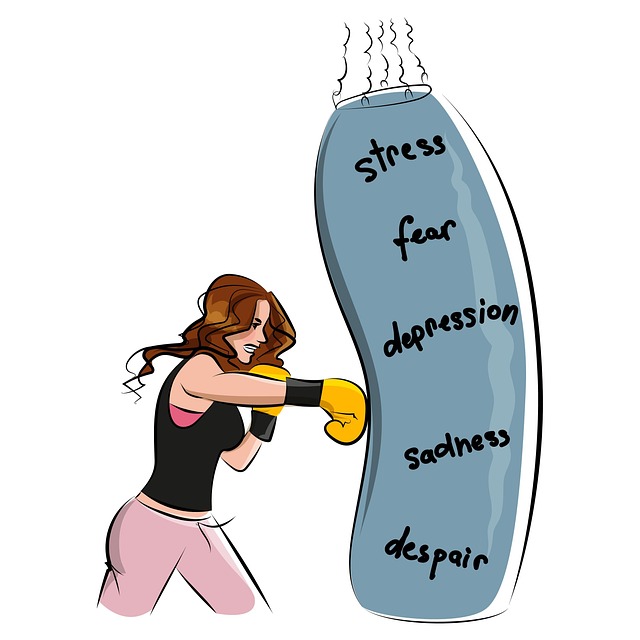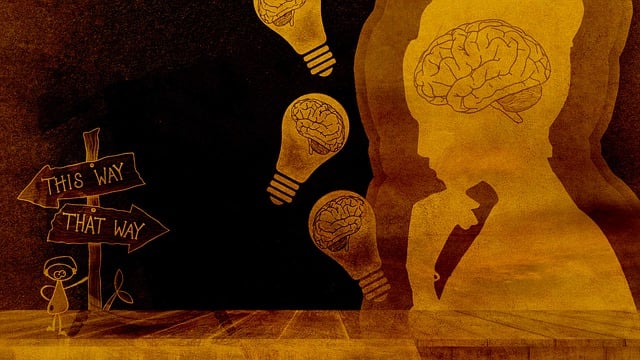Adolescence brings unique challenges, often leading to phobias that significantly impact daily life. Cognitive-behavioral therapy (CBT) is an effective treatment, empowering teens with emotional intelligence and mood management skills. Stress management workshops cater to adolescents' developmental stage, using interactive activities and educational content to teach emotional regulation techniques. These workshops create safe spaces, encourage open dialogue, and promote resilience. A strategic approach involving risk assessment, specialized techniques, and ongoing support is essential for professionals facilitating such programs, ensuring a supportive environment where teens can overcome phobias and enhance their mental wellness.
Stress management workshops play a pivotal role in equipping adolescent teens with coping mechanisms, especially those dealing with phobias. This article delves into the comprehensive process of designing and implementing effective therapy sessions tailored for this age group. We explore strategies to understand and address the unique stress factors and phobias that adolescents face. By providing practical techniques, we aim to create therapeutic environments fostering long-lasting positive changes, offering a supportive network for adolescent teens navigating their fears and anxieties.
- Understanding Adolescent Stress and Phobias: Unveiling the Impact
- Designing Effective Stress Management Workshops for Teens
- Strategies and Techniques: Creating a Therapeutic Environment
- Implementation and Support: Ensuring Long-Lasting Positive Changes
Understanding Adolescent Stress and Phobias: Unveiling the Impact

Adolescence is a period of significant physical, emotional, and cognitive growth, making it a critical phase in developing resilience to stress. However, this era also comes with unique challenges that can lead to various forms of distress for young individuals. Understanding adolescent stress is essential, as it can manifest in unexpected ways, including the development of phobias. These fears, often intense and irrational, can significantly impact a teen’s daily life, affecting their ability to attend school, socialize, or engage in activities they once enjoyed.
Therapy plays a pivotal role in addressing these issues, especially for adolescent teens struggling with phobias. Techniques like cognitive-behavioral therapy (CBT) have proven effective in helping young people manage and overcome their fears. By enhancing emotional intelligence and mood management skills, mental health professionals can empower adolescents to confront and overcome these challenges. A thorough risk assessment is crucial before initiating any treatment, ensuring a safe and supportive environment for the teen to navigate their journey towards better mental health.
Designing Effective Stress Management Workshops for Teens

Designing effective stress management workshops for teens involves tailoring content to their developmental stage and unique stressors. Incorporating interactive activities, such as mindfulness exercises and group discussions, can help adolescents engage with their mental health in a supportive environment. Educating teens on emotional regulation techniques, like deep breathing and cognitive reframing, equips them with tools to manage phobias and anxiety.
Cultural sensitivity in mental healthcare practice is paramount when organizing these workshops. Recognizing the diverse backgrounds of participants ensures inclusive strategies that resonate with all. Encouraging open dialogue about self-care routine development for better mental health empowers teens to take charge of their well-being, fostering resilience and a sense of agency.
Strategies and Techniques: Creating a Therapeutic Environment

Creating a therapeutic environment is an art that goes beyond mere physical spaces; it involves cultivating a sense of safety, comfort, and trust within the workshop setting. This is particularly crucial when targeting adolescent teens grappling with phobias, as their sensitivity to stress and anxiety can significantly impact their willingness to participate. Soft lighting, soothing music, and a color palette chosen for its calming effect are simple yet effective ways to commence the process of relaxation. The space should be organized with a clear focus on each activity, ensuring every participant feels included and empowered.
Community outreach programs can play a pivotal role in fostering this environment. By engaging parents or caregivers as allies, workshops can offer not just therapy for adolescent teens but also provide them with tools to share with their support systems at home. Inner strength development through mindfulness exercises and mental wellness coaching programs can be tailored to suit different learning styles, making the experience inclusive and impactful.
Implementation and Support: Ensuring Long-Lasting Positive Changes

Implementing stress management workshops requires a strategic approach to ensure long-lasting positive changes. Beyond the initial session, ongoing support plays a pivotal role in helping adolescents and teens navigate their emotional healing processes. This can include regular check-ins, access to mental wellness journaling exercise guidance, and continuous learning opportunities tailored to their evolving needs. By fostering an environment of open communication and providing practical tools for stress mitigation, these workshops empower young individuals to better cope with challenges.
Furthermore, it’s crucial to consider the risk assessment for mental health professionals facilitating such programs. They must be equipped with the necessary skills and resources to address potential triggers and emotional intensities that may arise during the process. Incorporating therapeutic techniques specifically designed for adolescents with phobias ensures a safe and supportive space where participants can explore and overcome their fears, ultimately enhancing their overall mental wellness.
Stress management workshops designed specifically for adolescent teens can be a powerful tool in addressing not only everyday stress but also more severe issues like phobias. By combining understanding adolescent psychology, effective workshop design, therapeutic strategies, and robust implementation, organizations can help teens develop lifelong coping mechanisms. This approach offers a proactive solution to the growing need for mental health support among young people, aiming to foster resilience and well-being through tailored therapy for adolescent teens with phobias.









